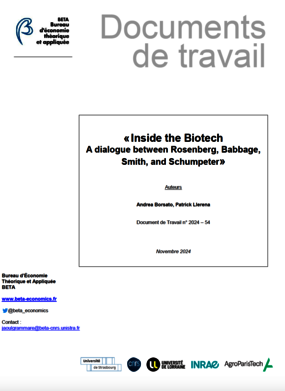Abstract
We provide a contribution to the understanding of the emergence of biotechnology as the result of a co-evolutionary process that required simultaneous innovations in four core domains: law, government policy, molecular biology, and finance. The result of these institutional changes had profound implications in terms of division of labour and division of knowledge that characterised the early biotech industry: the classical interpretation according to which the division of labour precedes and determines the division of knowledge via learning by doing might be challenged when the economic environment becomes uncertain. In this perspective, we posit that the division of knowledge may also precede the division of labour and that organisations make deliberate decisions regarding the allocation of resources to core and non-core competences. The different repartition of roles and institutions at work shaped the trajectories of early biotech start-up. These trajectories have epitomised in two theoretical variants in which the greater of lower emphasis on scientific research and commercialisation co-existed in differing degrees and determined long-term profitability and growth.
Keywords: Biotechnology, Dynamic complementarity, Division of labour, Division of knowledge, Entrepreneurial function.
Téléchargez le document de travail ICI



